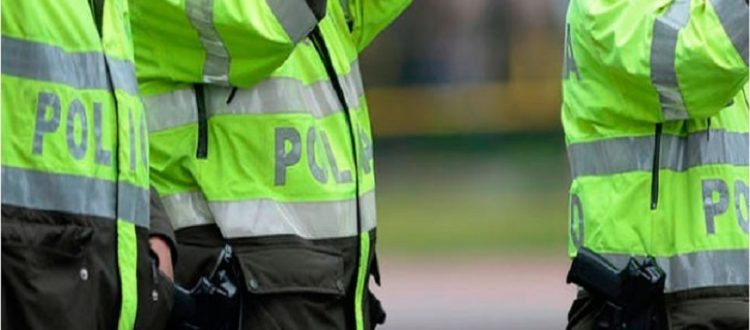Colombian police killed 86 people in 2020, report reveals
Instances of violence pointed to ‘structural and systematic’ abuses within the police force and sparked calls for reform.
Police officers in Colombia killed 86 people last year, according to a local NGO which reported “structural and systematic” abuses in the South American nation’s police force.
Temblores, an non-governmental organization that monitors state violence, also documented 7,992 cases of assault and 30 cases of sexual violence, with migrant communities and Afro-Colombians often the victims.
“This violence isn’t just because of a few rotten apples, it’s part of the architecture of the Colombian state,” said Alejandro Lanz, the director of the group’s police violence observatory.
The report prompted opposition lawmakers and activists on Wednesday to call on the government to end the abuses, many tweeting with the hashtag #ReformaPolicialYa (Police Reform Now)
“The absence of legitimacy around the the police, the grave abuses, the impunity and the pressure from [riot police] over protests are shameful,” wrote María José Pizarro, an opposition congresswoman, on Wednesday. “Without trust there is no security or authority.”
Police violence is endemic across Latin America, where protests are often met with deadly force, and police officers from Mexico to Brazil are often themselves involved in violent crime and carry out extrajudicial killings with impunity.
Last September, protests broke out in cities across Colombia after a lawyer, Javier Ordóñez, was killed by police. The incident was captured with phone footage that went viral: Ordóñez was pinned down by officers and repeatedly shocked with a Taser for over two minutes while he begged: “Please, no more.”
Thirteen people were killed and hundreds were injured by police officers during the ensuing unrest in Bogotá, the capital, and nearby city Soacha, while dozens of police precincts were vandalized and torched.
Two officers were placed under investigation for their role in Ordóñez’s death at the time, but no one has been convicted.
The figures released on Wednesday also show that the police often fail to investigate malpractices, and undercount cases of abuse by officers.
“We know from press reports and other sources that up to at least 10 people died in the protests last September, but state records claim that it was only five,” said Lanz. “The numbers of police abuses are far higher than the state is reporting.”
Both Colombia’s police and military have long been accused of human rights abuses, many of which were committed under the banner of the country’s civil war with leftist insurgent groups such as the Revolutionary Armed Forces of Colombia (Farc) and the National Liberation Army (ELN). The government signed a peace deal with Farc in 2016, though violence persists throughout the country.
A police code released after that deal gave officers broader scope to fine people, something which Lanz said emboldened the police. Ordóñez, the man killed in September, was initially stopped for drinking alcohol in public, something prohibited by the new code.
“Then, with the Covid lockdowns that began last year, the police had even more control over who got to be in public space,” Lanz said.
… as you join us today from Colombia, we have a small favour to ask. Through these turbulent and challenging times, millions rely on the Guardian for independent journalism that stands for truth and integrity. Readers chose to support us financially more than 1.5 million times in 2020, joining existing supporters in 180 countries.
For 2021, we commit to another year of high-impact reporting that can counter misinformation and offer an authoritative, trustworthy source of news for everyone. With no shareholders or billionaire owner, we set our own agenda and provide truth-seeking journalism that’s free from commercial and political influence. When it’s never mattered more, we can investigate and challenge without fear or favour.
Unlike many others, we have maintained our choice: to keep Guardian journalism open for all readers, regardless of where they live or what they can afford to pay. We do this because we believe in information equality, where everyone deserves to read accurate news and thoughtful analysis. Greater numbers of people are staying well-informed on world events, and being inspired to take meaningful action.
In the last year alone, we offered readers a comprehensive, international perspective on critical events – from the Black Lives Matter protests, to the US presidential election, Brexit, and the ongoing pandemic. We enhanced our reputation for urgent, powerful reporting on the climate emergency, and made the decision to reject advertising from fossil fuel companies, divest from the oil and gas industries, and set a course to achieve net zero emissions by 2030.
If there were ever a time to join us, it is now. You can power Guardian journalism and help sustain our future. Support the Guardian from as little as $1 – it only takes a minute. If you can, please consider supporting us with a regular amount each month. Thank you.
Fuente: https://www.theguardian.com/global-development/2021/feb/25/colombia-police-killings-violence-reform

